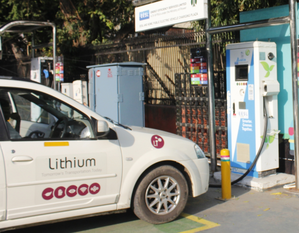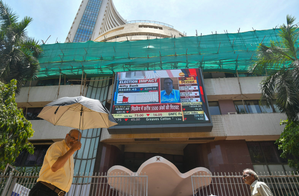New Delhi, 20 February (IANS). According to the India Energe Storage Alliance (IESA), a major industry body focused on e-mobility, energy storage and hydrogen, the cumulative number of EVs on Indian roads in 2030 is likely to cross 2.8 crores. This will increase the demand for energy from the grid.
According to an IESA statement, India’s cumulative EV sales have crossed 41 lakh units in FY 2023-2024 and the future approach to sell electric vehicles remains positive. Their demand is increasing due to environmental awareness, interest of customers, progress in battery technology and easy and accessible EV charging infrastructure.
“It is estimated that 83 percent of the annual sales will be electric-to wheeler, 10 percent of electric-for wheelers and trucks, buses like bus wheelers, will contribute seven percent to sales,” the IESA said.
India is making significant and continuous progress in its dekubonization journey, focusing on rapid growth in sales of electric vehicles, demand and supply incentives, growing consumer demand and charging infrastructure.
IESA President (Interim) Vinayak Walimbe said that there has been a sufficient increase in power consumption in India, which has reached 1,543 TWH (Trillion Watt Hour) in 2023-24. This is a seven percent increase compared to the previous year.
He said, “According to the Central Electricity Authority (CEA), the power consumption on public charging infrastructure was 465 GWH from April to October 2024, which is more than twice as compared to 204 GWH in 2022-2023.”
He said that most EV users are choosing the option of charging facility at home, so IESA estimates that in FY 2024-2025, there will be 4,000 GWH demand for energy for EV charging in FY 2025 which will increase by FY 2031-2032 to 38 twh. The demand for maximum electricity is estimated to be 366.4 GW. “
The Ministry of Power has prepared a National Electricity Plan, a 10-year-old roadmap. This is important to help future strategies forward and ensure energy security.
India is the third largest producer and consumer of electricity in the world.
The National Electricity Scheme estimates that the total annual demand on the Indian power grid will increase by 2031-32 to 2,133 TWH and as per IESA estimate, EV charging will be about three percent of the demand.
According to the IESA report, India’s total established capacity needs to be increased from 466 GW to 900 GW by 2032 in January 2025.
The scheme serves as a dedication to expedite the EV charging stations in future and to expedite the EV charging infrastructure to increase the number of charging stations by 2030.
-IANS
SKT/Ekde






